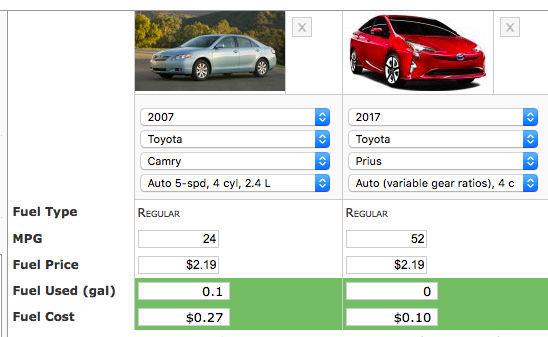As a household obsessed with maximizing savings, we are always on the lookout for new ways to cut costs. Every dollar saved is a seed planted for our future passive income, after all. So when I stumbled upon a tweet from Mr. Money Mustache (MMM) boasting about the incredible fuel savings of a new hybrid car, I couldn’t help but wonder: should we jump on the hybrid bandwagon?

Our Current Situation
We’ve already made some significant moves to reduce our transportation costs. In 2014, we relocated to just two miles from our workplace, slashing our fuel consumption. This year, we sold our second car, which was mostly gathering dust in the driveway. Now, we’re left with our trusty 2007 Toyota Camry–paid off and reliable.
The Temptation of New Technology
Electric and hybrid vehicles are all the rage now, and I’ll admit, Tesla’s innovations are intriguing. But as a cautious driver, I’m not quite ready to hand over full control to a self-driving car just yet!
Crunching the Numbers
Inspired by MMM’s tweet, I decided to run the numbers on our specific situation. We compared our Camry to the popular Toyota Prius Hybrid. Here’s what I found:
- Fuel Efficiency:
- Our Camry: 24 mpg city, 34 mpg highway
- New Prius Hybrid: 52 mpg combined
- Our Commute:
- Round trip: 2.6 miles
- Time: 6 minutes (I know, we’re spoiled!)
- Daily Fuel Costs:
- Camry: $0.54 round trip
- Prius: $0.20 round trip
- Daily savings: $0.34
- Annual Savings: $0.34 x 5 workdays x 46 weeks = $78.20 per year

The Verdict
Here’s the kicker: we’re planning to retire and move abroad in about three years, likely to a place where we won’t need a car. So our potential savings over three years? A whopping $234.60.
Factor in sales tax, registration fees, and the opportunity cost of not investing that money, and it becomes painfully clear: upgrading would actually cost us money in the long run.
When Upgrading Makes Sense
Our analysis might look very different if:
- We planned to keep the car for 10+ years
- We lived much further from work
- We found a deal with substantial savings (like the one in MMM’s ad)
The Real MVP: Living Close to Work
The truth is, our biggest savings came from reducing our commute a few years ago. By living close to work, we’ve minimized our transportation costs far more effectively than any hybrid could.
Lessons Learned
- Always run your own numbers. What works for one person may not work for you.
- Consider your long-term plans. Our upcoming retirement abroad significantly impacted our decision.
- Sometimes, the unsexy solution (like moving closer to work) yields the best results.
What about you? Have you considered switching to a hybrid or electric vehicle? If you’ve made the switch, have you seen significant savings? I’d love to hear about your experiences in the comments below!






Great analysis. Sometimes the analysis is over before it even starts. We still drive a gas guzzler – don’t ask how we got it 😉 – but since we drive only very few miles (5-6K miles/year) it’s not really worth it to switch. We plan to drive our current car for a few more years and if more reasons accumulate (repairs and maintenance of an older car, gas prices, etc.) we will reconsider.
Cheers!
ERN
Hi! How did you end up with a gas guzzler!?! Just kidding, no judgment here. Overall, we drive very little as well. Sometimes I even forget that there’s a gas tank to fill. I’m okay with handling some repairs at this point. The biggest expense this year was replacing the alternator. We’re hoping to retire before our car so that we don’t have to spend on major repairs. Thanks for stopping by!
We were able to save a ton due to DW commute being 30 miles round trip everyday and moving from a gas guzzler suv (18mpg) to a pre-loved Prius (46mpg).
They were 7 and 8 years old respectively and we made an even trade so no acquisition costs for us. Which made the savings even more compelling.
On a recent long range trip we averaged 56mpg!!!
Hi LM,
56 mpg is impressive! That made perfect sense for your situation. Thanks for stopping by!